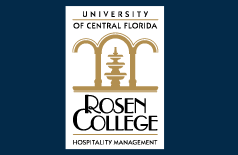
Event Title
Parallel Session 36, MICE Track: How to Secure Funding For a Convention Center and CVBs: The Cases of the State of Florida and Japan
Location
Classroom 209
Start Date
14-12-2017 5:15 PM
End Date
14-12-2017 5:40 PM
Description
This paper aims to investigate how convention and visitor bureaus (CVBs, which can be synonymous to Destination Marketing Organizations) can secure sustainable sources of tourism funding to create convention centers and marketing activities through introducing and continuing the hotel room tax or related travel industry promotion tax (hereinafter, referred to as "tourist tax" in general, if not otherwise specified). Specifically, this paper focuses on politics and geographic aspects of how tourism policy professionals can introduce the tourist tax by successfully avoiding, minimizing, and dealing with possible local oppositions about the tourist tax.
Firstly, this paper provides the classification frameworks for analyzing different CVBs funding through tourist tax. Secondly, this paper shows case studies of funding CVBs and tourism public infrastructure such as convention centers from tourist tax in Florida with the focus on political debate. Thirdly, this article offers Japanese case studies where Tokyo Metropolitan Government enacted the first hotel tax in 2002, and other major cities adopted or are considering introducing tourist taxes. Fourthly, we will analyze how hotel industry reacts to the introduction of tourist tax, applying Olson’s (1971, 1982) theory, and how each county in Florida and how different Japanese cities started enacting hotel taxes.
Parallel Session 36, MICE Track: How to Secure Funding For a Convention Center and CVBs: The Cases of the State of Florida and Japan
Classroom 209
This paper aims to investigate how convention and visitor bureaus (CVBs, which can be synonymous to Destination Marketing Organizations) can secure sustainable sources of tourism funding to create convention centers and marketing activities through introducing and continuing the hotel room tax or related travel industry promotion tax (hereinafter, referred to as "tourist tax" in general, if not otherwise specified). Specifically, this paper focuses on politics and geographic aspects of how tourism policy professionals can introduce the tourist tax by successfully avoiding, minimizing, and dealing with possible local oppositions about the tourist tax.
Firstly, this paper provides the classification frameworks for analyzing different CVBs funding through tourist tax. Secondly, this paper shows case studies of funding CVBs and tourism public infrastructure such as convention centers from tourist tax in Florida with the focus on political debate. Thirdly, this article offers Japanese case studies where Tokyo Metropolitan Government enacted the first hotel tax in 2002, and other major cities adopted or are considering introducing tourist taxes. Fourthly, we will analyze how hotel industry reacts to the introduction of tourist tax, applying Olson’s (1971, 1982) theory, and how each county in Florida and how different Japanese cities started enacting hotel taxes.


